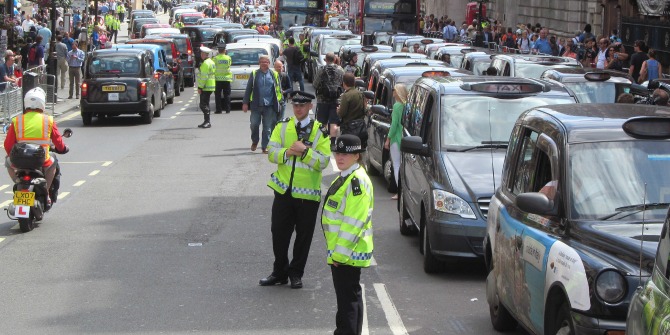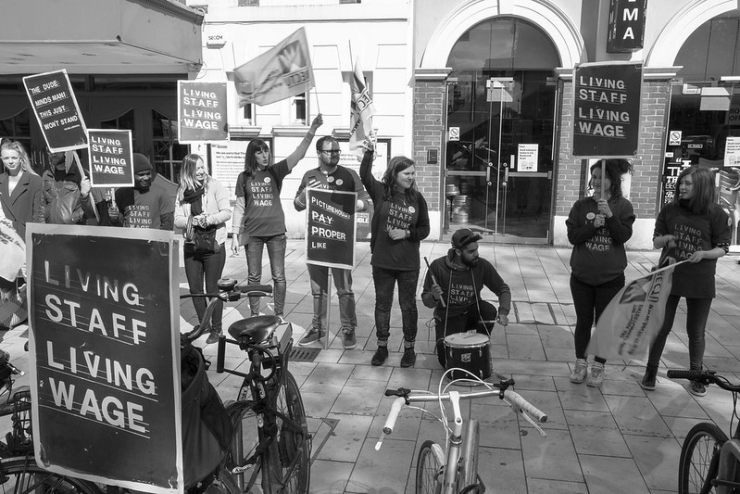
In the summer of 2015, in a crowded beer garden in Barcelona, we talked about work – the work we were doing then. It was a rather sad conversation, because the bottom line was that our jobs were uninspiring at best. Work was making us anything but happy.
We weren’t frustrated with the work itself. It was interesting, challenging, and a good fit for our engineering degrees. What was driving us nuts was the way our employers arranged things. That, and the fact that we were treated like children. It was frustrating to be forced to follow archaic and outdated procedures and protocols that held no room for creativity, offered no leeway. There was a complete lack of appreciation for any sliver of lateral thinking or entrepreneurship. Any idea that might poke the status quo in the ribs was immediately shot down. We weren’t experienced in the ways of business, but we knew we could set out on our own if we could just think what, exactly, we should do.
Ever since our university days we had been fascinated by pioneers, the brave souls who tackled “work” in a radically different way. We were inspired by companies that kept their employees engaged and connected. Our interest was sparked by a documentary about Brazilian entrepreneur Ricardo Semler. Semler made his machine factory, Semco, into a grand success in the 1980s by breaking rules and trashing all those conventions we had come to despise. Semco had no time for managers, unnecessary meetings, and pointless regulations. Employees had the freedom to determine their work hours – and their salary. We found more inspiration in the philosophies of workplace gurus such as Simon Sinek and Dan Pink. We dived into the extraordinary company cultures of Google and Spotify. There was a seemingly unbridgeable chasm between these inspiring stories and the drudgery of our day-to-day lives.
Shortly after the notion of Corporate Rebels was born, we handed in our notice, moved into a small apartment and lived together to save costs. For the next couple of months, everything we did, we did from there. We built our website, made plans for our bucket-list trips, and read countless books on management.
We did the research and discovered that we were not the only ones completely disengaged from work. Studies show this is a major issue all over the world. The research institute Gallup, which has been measuring employee engagement for years, and in over 150 countries, has come up with some numbers that shocked us. Worldwide, only 15 per cent of employees feel engaged with the work they do. There are employees who are so frustrated that they go out of their way to sabotage their workplace. We discovered that we live in a world where the majority gets little or no satisfaction from their daily grind.
Although many organisations seem to be aware of this, little is done to spur change. Which is strange, because Gallup estimates that globally, $7 trillion – more than half of China’s GDP – is wasted in lost productivity thanks to disengagement. Despite this, the focus of traditional firms remains on performance, especially on money and output. Engagement is a nice-to-have, not a must-have.
A company with engaged employees will show better financial returns than one staffed by unmotivated and unhappy people. Put yourself in the equation: you probably perform much better when doing things that you enjoy and find rewarding. Engaging workplaces enjoy significantly higher profitability, productivity and customer satisfaction. They also have lower staff turnover, less absenteeism and fewer accidents.
Now that we were convinced that having an engaged workforce is a very good idea, the next step was to find out how it is possible that most organisations still work in ways that create such a huge disengagement problem. We soon discovered that the laws of management obeyed in most of today’s workplaces were created during the previous century.
The bureaucrats still run the greater number of our modern-day workplaces and most of our current organisational models find their roots in the industrial revolution. Traditional organisations involve strong hierarchies, rigid rules and make work increasingly specialised. Decision making is incredibly slow, collaboration is frustrated by politics. It seems that the world of management thinking is a collection of dead ideas.
We quit our jobs in a quest to make our working lives — and yours — more fun. That’s why we started Corporate Rebels, drafted our bucket list, and set out to meet our heroes. We wanted as much diversity as possible: to invalidate stereotypes and prove once and for all that work – any work – can be fun. Regardless of the job, and where it’s performed; even in places where you would least expect it, such as government organisations, or whitegoods manufacturers in China.
Our bucket list is graced with inspiring companies found in the most unlikely places – and that is sometimes part of their strength. It’s direct evidence that you can make work enjoyable and rewarding, even in the most challenging environments. It is possible in every company, and can be applied in every industry, everywhere in the world. It was time to start ticking off these names.
That day in the Barcelona beer garden now seems a long way back. For four years we’ve been travelling and researching the world’s most progressive workplaces. The frustration of our corporate jobs has long since dissipated. We now get to research topics that impassion us. We meet pioneers around the globe who are as enthusiastic about these things as we are. We work with them and learn from their experiences. We share all this with fellow rebels through our blog, talks and workshops, and online via the Corporate Rebels community.
Our first book to document our adventures will be published soon. It does not pretend to be a ready-made solution, a magic spell to turn your workplace into paradise. The ideas within are inspiration for change. Take from it what you need. This book is an overture to options, ideas, and inspiration, not a doctrine to follow. What you make of it is up to you and we hope you enjoy the journey.
♣♣♣
Notes:
- This blog post draws on the author’s book Corporate Rebels: Make work more fun, with Joost Minnaar.
- The post expresses the views of its authors, not the position of LSE Business Review or the London School of Economics.
- Featured image by bruce mars on Unsplash
- When you leave a comment, you’re agreeing to our Comment Policy.
 Pim de Morree started Corporate Rebels after saying goodbye to a corporate job. Besides travelling the world and researching, he writes for the Corporate Rebels blog, advises companies, and gives keynote presentations to inspire organisations to radically change the way they work. Together with the rest of the Corporate Rebels team, he supports the growth of a global movement to make work more fun.
Pim de Morree started Corporate Rebels after saying goodbye to a corporate job. Besides travelling the world and researching, he writes for the Corporate Rebels blog, advises companies, and gives keynote presentations to inspire organisations to radically change the way they work. Together with the rest of the Corporate Rebels team, he supports the growth of a global movement to make work more fun.





